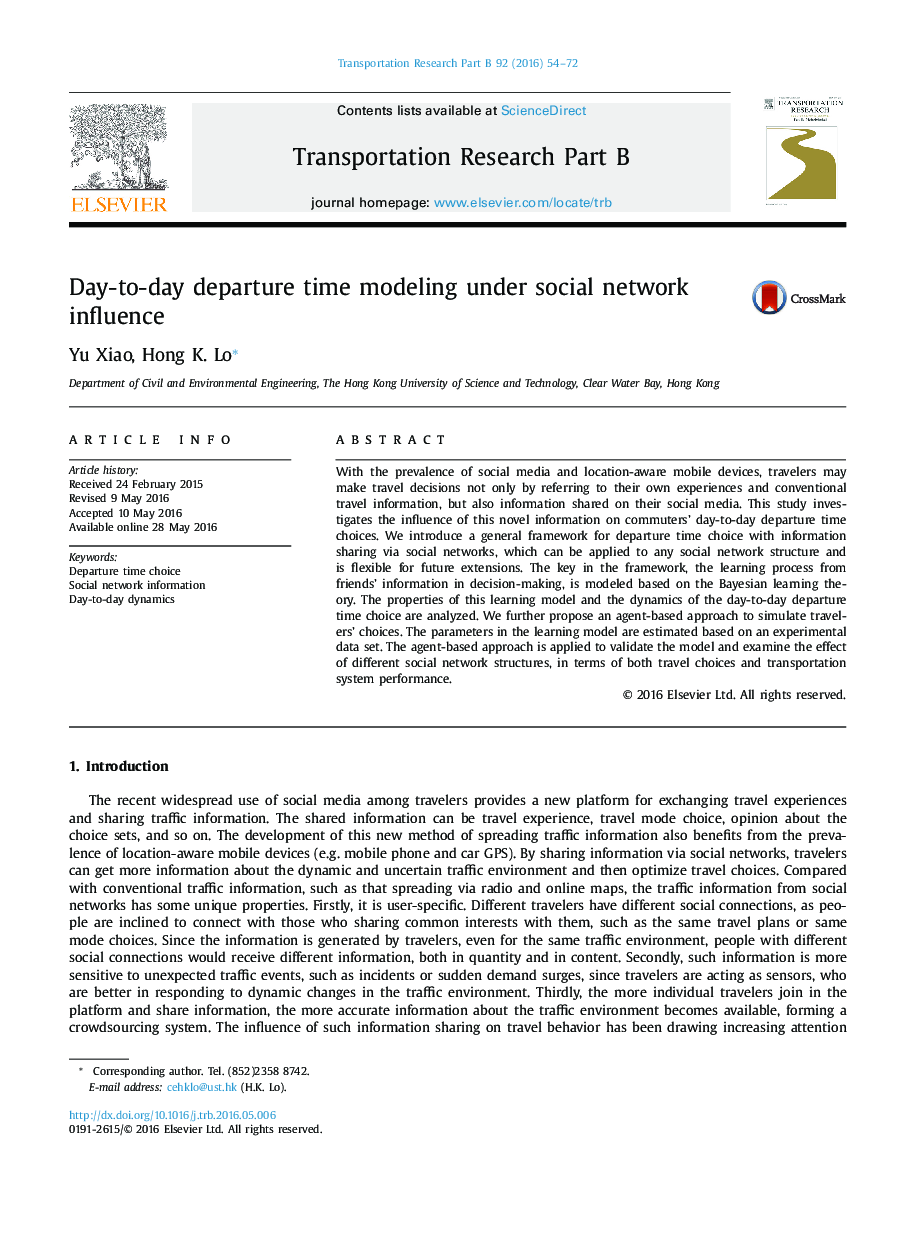| Article ID | Journal | Published Year | Pages | File Type |
|---|---|---|---|---|
| 5127213 | Transportation Research Part B: Methodological | 2016 | 19 Pages |
â¢We model the learning behavior of travelers based on Bayesian updating, and extend it for the context of social network information sharing.â¢The general framework developed can cater for all sorts of social network configurations.â¢We estimate the parameters in the model based on an experimental dataset.â¢The number of friends has an important impact on traveler's departure time choices.â¢Within the same social network, travelers with more social connections tend to get lower travel cost by making better choices.
With the prevalence of social media and location-aware mobile devices, travelers may make travel decisions not only by referring to their own experiences and conventional travel information, but also information shared on their social media. This study investigates the influence of this novel information on commuters' day-to-day departure time choices. We introduce a general framework for departure time choice with information sharing via social networks, which can be applied to any social network structure and is flexible for future extensions. The key in the framework, the learning process from friends' information in decision-making, is modeled based on the Bayesian learning theory. The properties of this learning model and the dynamics of the day-to-day departure time choice are analyzed. We further propose an agent-based approach to simulate travelers' choices. The parameters in the learning model are estimated based on an experimental data set. The agent-based approach is applied to validate the model and examine the effect of different social network structures, in terms of both travel choices and transportation system performance.
